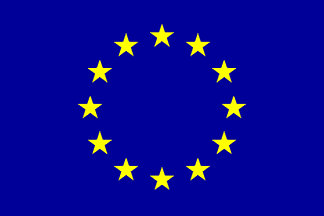As per Directive 2001/83/EC, following types of applications are available for Registration of Pharmaceuticals.
- Full application
- Generic application
- Hybrid application
- Similar biological application
- Well-established use application
- Fixed combination application
- Informed consent application
1. Full application: Article 8(3) of Directive 2001/83/EC deals the required information for full application. Applicant has to submit the the results of pharmaceutical tests (physico-chemical, biological or microbiological), pre-clinical tests (pharmacological and toxicological), and clinical trials need to be submitted.
Detailed data requirements are set-out in Annex I to Directive 2001/83/EC, as amended by Directive 2003/63/EC.
Where Module 4 and/or 5 consists of a combination of reports of limited non-clinical and/or clinical studies carried out by the applicant and of bibliographical references this kind of application has also to be submitted according to Article 8(3) of Directive 2001/83/EC (So-called ‘full-mixed’ application)
2.Generic application: According to Article 10(1) of Directive 2001/83/EC, the applicant is not required to provide the results of pre-clinical tests and clinical trials if he can demonstrate that the medicinal product is a generic medicinal product of a reference medicinal product which is or has been authorized for not less than 8 years in a Member State or in the Community.
A generic medicinal product is defined as a medicinal product that has:
- The same qualitative and quantitative composition in active substances as the reference product,
- The same pharmaceutical form as the reference medicinal product
- And whose bio-equivalence with the reference medicinal product has been demonstrated by appropriate bio-availability studies.
3. Hybrid application: Hybrid applications under Article 10(3) of Directive 2001/83/EC differ from generic applications in that the results of appropriate pre-clinical tests and clinical trials will be necessary in the following three circumstances:
- Where the strict definition of a ‘generic medicinal product’ is not met;
- Where the bioavailability studies cannot be used to demonstrate bioequivalence;
- Where there are changes in the active substance(s), therapeutic indications, strength, pharmaceutical form or route of administration of the generic product compared to the reference medicinal product
- These applications will thus rely in part on the results of pre-clinical tests and clinical trials for a reference product and in part on new data.
4.Similar biological application: In Article 10(4) of Directive 2001/83/EC it is stated that where a biological medicinal product which is similar to a reference biological product, does not meet the conditions in the definition of generic medicinal products, owing to, in particular, differences relating to raw materials or differences in manufacturing processes of the similar biological medicinal product and the reference biological medicinal product, the results of appropriate pre-clinical tests or clinical trials relating to these conditions must be provided.
5. Well-established use application: According to Article 10a of Directive 2001/83/EC, as amended it is possible to replace results of preclinical and clinical trials by detailed references to published scientific literature (information available in the public domain) if it can be demonstrated that the active substances of a medicinal product have been in well-established medicinal use within the Community for at least 10 years, with recognized efficacy and an acceptable level of safety.
Criteria for well-established use:
- The time over which a substance has been used with regular application in patients; quantitative aspects of the use of the substance, taking into account the extent to which the substance has been used in practice, the extent of use on a geographical basis and the extent to which the use of the substance has been monitored by pharmacovigilance or other methods;
the degree of scientific interest in the use of the substance (reflected in the published scientific literature) and the coherence of scientific assessments
- Applicants should submit Modules 1, 2 and 3 as described in EU-CTD, For Modules 4 and 5, a detailed scientific bibliography shall address all required pre-clinical and clinical characteristics, and should be summarised in Module 2.
The combination of active substances within a single pharmaceutical form of administration according to this provision is a so-called ‘fixed combination'
7. Informed consent application: According to Article 10c of Directive 2001/83/EC as amended, following the granting of a marketing authorization, the authorisation holder may allow use to be made of the pharmaceutical, non clinical and clinical documentation contained in the dossier of the medicinal product for the purpose of examining subsequent applications relating to other medicinal products possessing the same qualitative and quantitative composition in terms of active substances and the same pharmaceutical form.
Applicant has to submit the Module 1, including the Application Form with relevant Annexes and letter of consent from the MAH of the authorised medicinal product allowing access to modules 2, 3, 4, 5 of the initial dossier and any subsequent documentation submitted.
Reference:

No comments:
Post a Comment